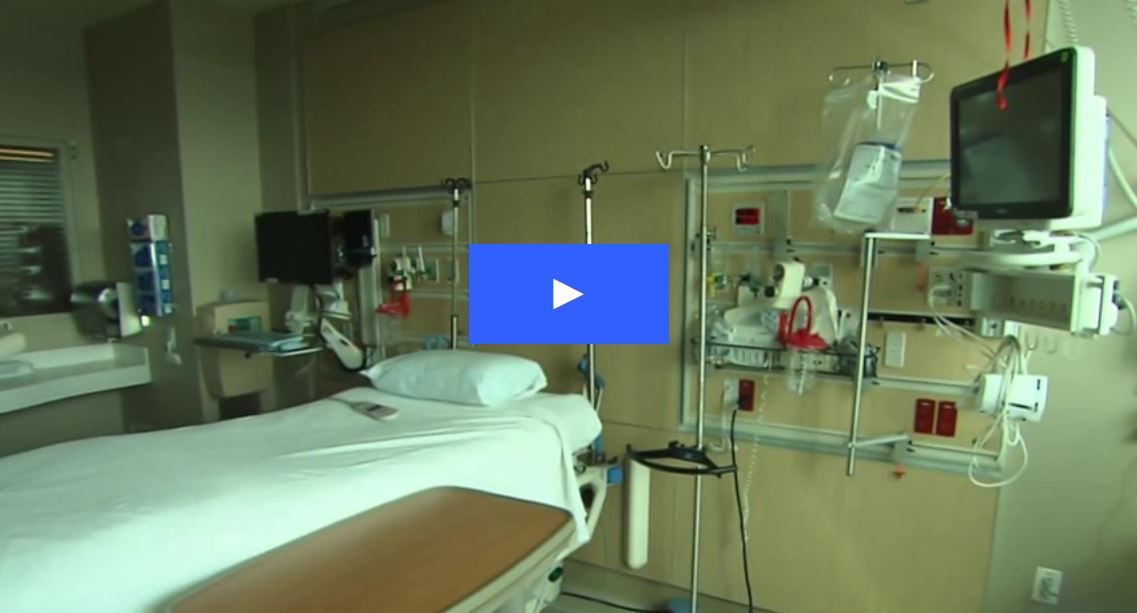Telemedicine and medical facility preparedness: Our response to COVID-19
The novel coronavirus is testing the capacity of health systems around the world. Kaiser Permanente’s integrated system enables us to leverage protocols created during previous disease outbreaks, disseminate them to doctors and care teams quickly, and leverage technology to support the safest care.
March 19, 2020
Dr. Stephen Parodi, infectious disease specialist and incident commander for the COVID-19 response for Kaiser Permanente nationally, was interviewed by Howard Bachner, editor-in-chief of JAMA (Journal of the American Medical Association) via NEJM Catalyst. This interview is part of a series on COVID-19 Mitigation: Preparing Hospitals and Health Systems.
“This can come on very quickly. … We need to prepare for that level of surge.” — @StephenParodiMD about hospital preparations for #coronavirus speaking now on #JAMALive @JAMA_current
— PermanenteDoctors (@PermanenteDocs) March 19, 2020
Watch the interview: Preparing Hospitals for Coronavirus
March 16, 2020
Today Kaiser Permanente Washington Health Research Institute gave the first-ever injection of an investigational vaccine for the 2019 novel coronavirus, SARS-CoV-2, to volunteers participating in phase one of the federally sponsored clinical trial.
Read the article: First COVID-19 vaccine trial at Kaiser Permanente Washington
March 13, 2020
There is now evidence in the US that many cases of COVID-19 are not travel-related. They have been transmitted within the community. Given the evolving situation, the efforts need to switch to mitigation, rather than containment. Doctors Stephen Parodi and Vincent Liu share Kaiser Permanente’s approach to mitigation.
Read the article: From Containment to Mitigation of COVID-19 in the US
March 12, 2020
Recognizing that the virus is a community challenge, we partner with public health organizations to address the challenges in entire communities. To this end, Kaiser Permanente is donating $1 million to at least 10 public health organizations to help fight the COVID-19 outbreak.
“Public-private collaboration and intergovernmental coordination are critically important in creating effective outbreak response,” said chief health officer Bechara Choucair, MD. “These groups have immense breadth and depth of experience addressing public health issues and can ensure alignment with the health care ecosystem.”
As a further step to stop the spread of the coronavirus, Kaiser Permanente announced a partnership with the CDC Foundation, a nonprofit organization created to assist the Centers for Disease Control and Prevention.
Read the articles:
Kaiser Permanente donates $1M to bolster coronavirus response
Prompted by COVID-19 Outbreak, Kaiser Permanente Announces CDC Foundation Partnership
March 11, 2020
What is Kaiser Permanente’s response to the outbreak of the novel coronavirus? How have medical facilities prepared, and how is Kaiser Permanente leveraging telemedicine to help curtail the spread of the virus and keep patients and health care professionals safe?
An online video from the NBC Nightly News (February 29, 2020, Patterson) takes viewers behind the scenes at Kaiser Permanente Oakland Medical Center in Oakland, California. Stephen Parodi, MD and Mary Meyer, MD share how Kaiser Permanente has prepared for an outbreak and is ready to treat COVID-19 while keeping patients and caregivers safe. An entire floor has been reserved for potential patients, and care teams conduct drills using isolation rooms designed to contain the spread of infection. Says Dr. Meyer, “We’ve been preparing for this for months, and I think that’s kind of the key to any real response…All preparedness is planning ahead.”
View the video: How hospitals are preparing for potential coronavirus patients
On a related topic, Dr. Parodi spoke with the New York Times about the use of telemedicine to continue to treat patients while combatting the coronavirus outbreak (March 11, 2020, Abelson). According to the New York Times, Kaiser Permanente is “one of the leaders in the use of virtual visits for its patients.” Dr. Parodi, associate executive director of The Permanente Medical Group and an infectious disease specialist, explains, “The use of telemedicine is going to be critical for management of this pandemic…The patients have been appreciative of that switch…Many of them don’t want to come in and be exposed in a clinic or office setting.”
Read the article: Doctors and Patients Turn to Telemedicine in the Coronavirus Outbreak



